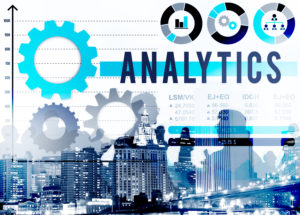
Jenn Steele has done a great job of narrowing down what she thinks are the 6 top illusions or misconceptions that executives have of Big Data. People from all walks of life can throw around the term “Big Data” in a conversation, but do they really understand the meaning? Let’s take a quick look at the illusions that Steele describes in her article, “6 Illusions Execs Have About Big Data”, and see if you agree.
- All data is big data.
If you are dealing with truly big data, the volume and variety of data will not be able to fit into something like an Excel file. And while you might be dealing with a lot of data in your massive Inbox, it is not truly big data. In sum, Big Data exceeds what individually weighs us down on our own laptop.
- Big data solves every problem.
Big data analysis is not a substitute for applying common sense–often without a computer in sight. Analyzing massive amounts of data could just reveal what is eminently obvious, like the fact the Eskimos are not a good market for ice cubes.
- Big data is meaningless.
At other end of the spectrum, there are folks who feel the opposite about big data: given how hard it is to define, they figure that it must be a useless term. This strikes us as a perilous notion. It suggests that the (big amounts of) data you capture have no use for your business. Instead, you might consider how to frame meaningful questions that your data might help answer–and then get some preliminary advice from a solution vendor about how to proceed.
- Big data is easy.
I don’t know about you but the concept of gathering, manipulating and analyzing massive volumes of data does not sound that simple. According to Jenn Steele, there are some top executives that think it is simple and should be easy. Yes, once you have the process and solution application in place it should run smoothly and be effective. But, I wouldn’t exactly describe the term “big data” as simple and easy.
- Imperfect big data is useless.
Steele uses the following great example when squashing this illusion: if we have one billion products with 520 data points that we hold accountable to a standard of 99.999% of perfection (which many IT departments strive to achieve) that still means that 52 million points of that data are incorrect in that dataset. And yet!–it would be a big mistake to toss out insights that this kind of big data analysis yields. To create a perfect big data environment is nearly impossible, and the scale of insight you gain (even with some imperfections) could change the way you drive key businesses decisions.
- Only big companies need big data.
Every company, big or small, needs insights on how it is performing and how it can stay ahead of their competition. While big companies may produce most of their own massive data sets, smaller companies need to be prepared to handle their big data–even if that means gathering data from outside sources they might not have considered.
So Big Data may not be what you thought it was, but it s relevant and important to staying competitive. Need some powerful software to analyze your big data set? Check out Olation!
To read the entire article, click here.

